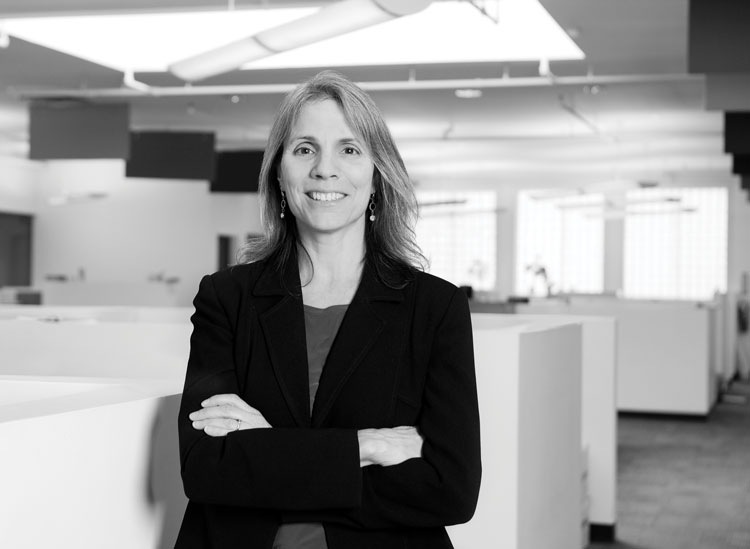Legal aid program in Oklahoma is dedicated to representing moms in trouble

Robin Steinberg: “Is really the response to these kinds of things to handcuff moms and put them in jail, removing them from their families and destroying their communities?” Photo by Gitwit.
FIGHTING A CULTURE
The Still She Rises team says Oklahoma has a different culture about the role of punishment, especially compared to what some of the attorneys witnessed in New York.
“People here see punishment as a tool for discipline, a consequence of bad choices and bad behavior,” says Kristen Black, a social worker with the Bronx Defenders.
This leads to lengthy sentences and harsh penalties and bail practices. Black says the same kinds of criminal charges that would have been three to five years in prison in the Bronx is set at 20 years in Tulsa.
“One thing that contributes is a strong idea of criminalization of mothers and what a mother or woman should be—and punishing someone who doesn’t fit that model,” says Asher Levinthal, family defense resource specialist at Still She Rises.
He says a mother could be sitting in jail because she didn’t have running water in her home while her kids were there or because her kids were home alone without a baby sitter.
“These cases, we see in criminal court here, which I never saw [in criminal court] in New York. These sorts of cases are really the criminalization and punishment of mothers for falling short of the way this state and the prosecutors view womanhood and motherhood,” he says.
Faced with fees and fines of probation from such charges, mothers are forced to choose between feeding their child and paying the fees with the little money they have. “So she’s put in prison for choosing to feed her child,” Levinthal says.
Working in the state that incarcerates the most women per capita in the country, the team continues to unpack other issues that might be driving women into the system, broadening the representation beyond the confines of a criminal case. Still She Rises aims to fight injustices and systemic issues that women face there, working closely with stakeholders and other members of the north Tulsa community. In addition to providing individual defense, Still She Rises helps connect clients to public benefits and services, including abuse treatment, counseling and child care.
A PATH FORWARD
Before the arrival of Still She Rises, women in the north Tulsa community have barely had easy access to free lawyers. Now, they can walk through the doors and get the help they need.
Even though the Tulsa office is a little more than a year old, the team has received support and gained trust from the community. With five new young attorneys joining the team in the fall, Steinberg says Still She Rises will continue to start a path forward with stakeholders in the system to help change some of the practices, culture and systems that are impacting the women of north Tulsa.
“Sometimes it feels like pushing a boulder up a hill, but we’re making progress every day,” Steinberg says. “We are really inspired by the clients. If my client can go through the system and be treated with such inhumanity, lack of dignity and unfairness and still come out at the end of the day with a sense of hope, optimism and resilience, then the least we can do as lawyers is to stay in the work and fight really hard every single day.”
Brown witnessed the team’s passion as Still She Rises defended her through every step of her case until it was resolved with a suspended sentence, no jail time and six years of probation. Today, she participates in rehabilitation aftercare with Women in Recovery, an intensive outpatient alternative in Tulsa for women facing long prison sentences for drug-related offenses. Brown had been part of the rehab group before Still She Rises’ arrival to Tulsa.
Working and taking care of her family, including her 9-year-old daughter, Brown still sometimes calls the Still She Rises members who helped her and encourages others in need of help in her community to reach out to the organization.
“The day I accepted the plea it felt almost godsent,” she says. “Without them, I would be incarcerated right now. Still She Rises means my freedom.”
This article was published in the October 2018 ABA Journal magazine with the title "Defending Mothers."



